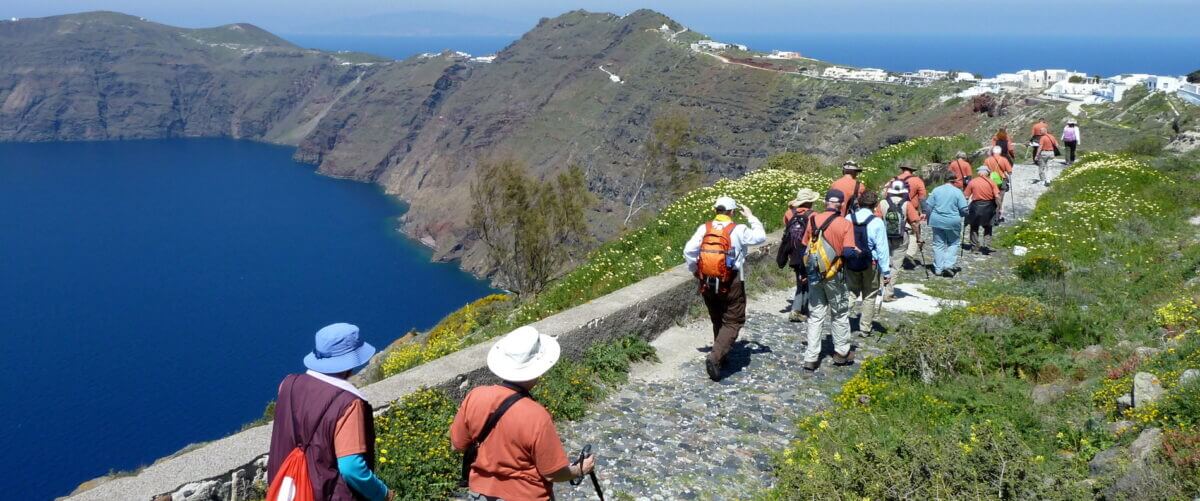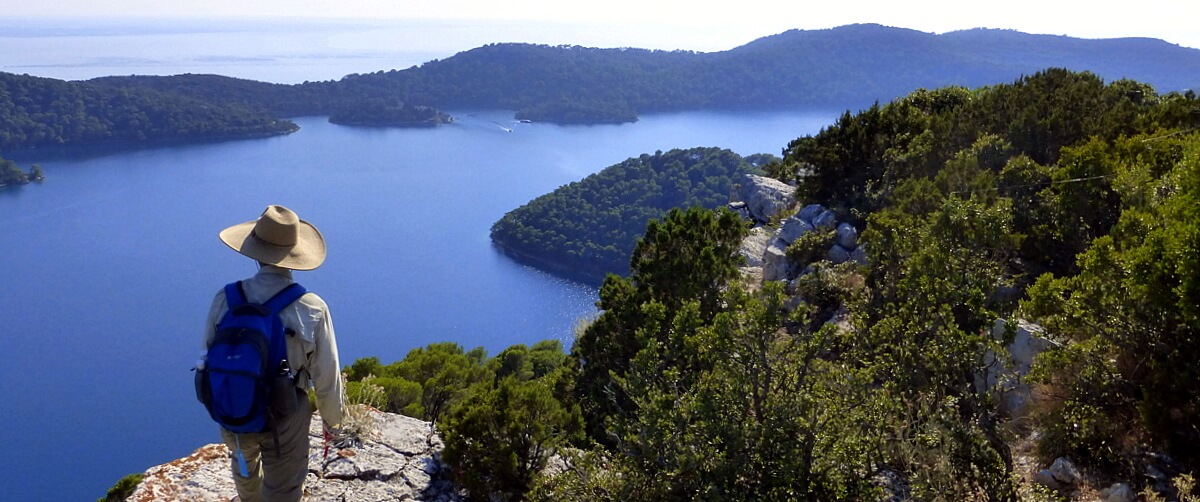by Dan Friesen
I’ve been pondering for the past 30 to 45 minutes how best to present the sensory-stretching, paradigm-purging, culture-crossing, brain-busting experience of visiting both Greece and Turkey in one extraordinary journey of discovery.
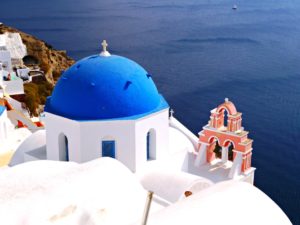
Is it possible to encapsulate over 4000 years of life on earth at the fulcrum of western history, starting with the Minoans (remember King Minos and the legend of the minotaur) on the Aegean islands of Crete and dreamy Santorini, and ending with the 21st century dispute over who makes the best baklava–Greeks or Turks? (My vote goes to the Turks, but only by a honey-covered whisker).
Between these two chronological bookends lie over 300 centuries of history-making events—the shaping of Western Civilization that include, among others:
- a 17th century BC volcanic eruption that turned a Aegean Island of Minoan sophistication into a seawater-fill caldera that in turn became the 21st century AD paradise of Santorini;
- mythical musings of Greek sage, Homer, about Mycenae and Troy (remember Agamemnon, Achilles, Ajax, and the Trojan War) that turned out to involve facts;
- the Golden Age of Greece in the 5th, 4th, and 3rd centuries BC that spawned multiple revolutions in the arts, sciences, and politics;
- worldview conflicts between Greek culture’s man-centered knowledge-quest and the Jews’ God-centered worship, the context from which Christianity was birthed and spread into both Turkey (Asia Minor) and Greece on 1st century missionary journeys of the Apostle Paul
- the Apostle John’s forward-looking Book of Revelation of the End Times—the grand finale of the Bible after Paul’s letters—written in exile on a remote Turkish island;
- a litany of empires—Xerxes and the Persians, Alexander the Great, Rome based in the city of Rome, Byzantium (Eastern Rome) based in Constantinople, and the Ottoman Turks whose dominance was finally eclipsed at the end of World War I.
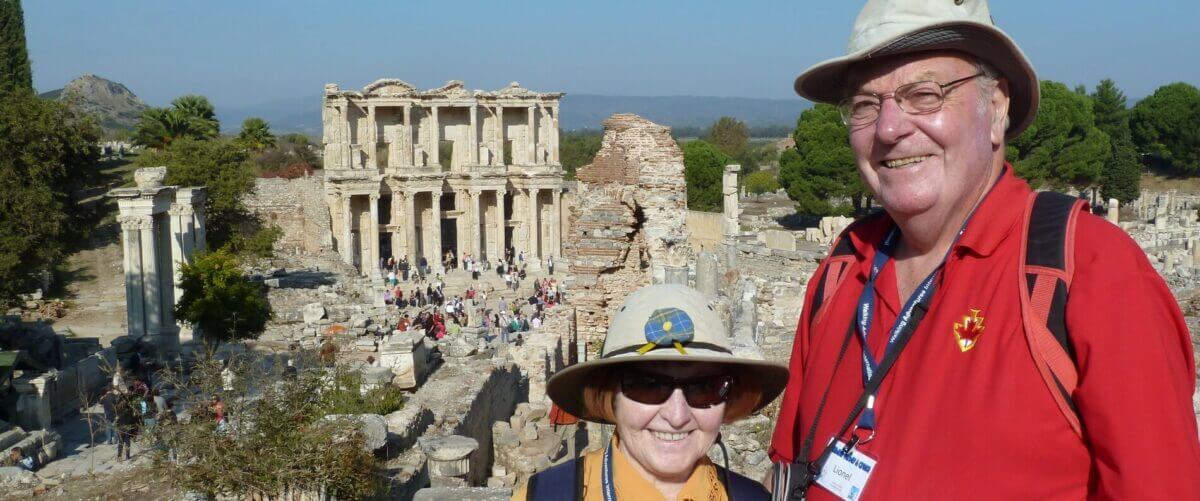
The bewildering and captivating kaleidoscope of history, culture, cuisine, and natural wonders is laid out before us, day upon day throughout this Adventure.
Continents Apart
Greece and Turkey are adjacent to one another at the extreme end of the eastern Mediterranean, yet differences between them are stark, literally continents apart.
Geography: Greece sits in Europe. Turkey is mostly in Asia. The famous neck of water called the Bosporus connects the Black Sea with the Mediterranean, bisecting Istanbul, but separates the northwestern European tip of the country, called East Thrace, including the most historic corners of Istanbul, from the south bulk of the nation called Anatolia (historically “Asia Minor”).
Religion and Culture: Greece inherited the Orthodox branch of Christianity, sometimes called Eastern Christianity, from Istanbul (formerly Constantinople). Asia Minor was Christian, and Constantinople was the center of Orthodox faith, for over 1000 years, until the Ottoman Turks overthrew the impregnable city in 1453. Since then, Turkey, and Constantinople renamed as Istanbul, have been stalwart, non-Arabic pillars of the faith of Islam.
A Tense Neighborhood: They share the Aegean Sea, but since the 15th century, it has generally not been a harmonious co-existence, and remains contentious today. Greece is part of the European Union. Turkey has vainly sought entrance for decades, though that enthusiasm has waned of late. Middle Eastern immigration flows into Europe through Turkey, then into Greece. Diplomacy is often strained by centuries of animosity and national interests often not aligned. It’s a complicated relationship.
Our Approach
Our start in Greece is intentional. Though Greece is a better-known travel destination, our assessment, and that of most former WAI travelers, is that saving Turkey for last does not a letdown create, and in fact the reverse is true, as hinted at by my delicious tongue in cheek comment above about baklava.
Greece
-
- We fly from Athens first to Crete, generally following the historic chronology of the Minoan Civilization (Europe’s oldest) and ancient Greece.
- Two nights on delightful Crete, home of the palace of Knossis and the mythical minotaur’s maze, is followed by two nights on the island of Santorini, favorite stay of many and site of one of our Top 10 walks worldwide.
- A flight to the mainland ends with two nights on the Peloponnese, a peninsula that is home to much of the story of ancient Greece, including the ruins of Mycenean and the fortress of Agamemnon, who led the armada against Troy, that famous Homeric war over the lovely Helen that only ended with the successful ruse of the Trojan Horse.
- Finally, we end with two nights in Athens, capstone of the Golden Age of Greece and home of the famous Parthenon, pinnacle of architectural triumph from the 5th century BC.
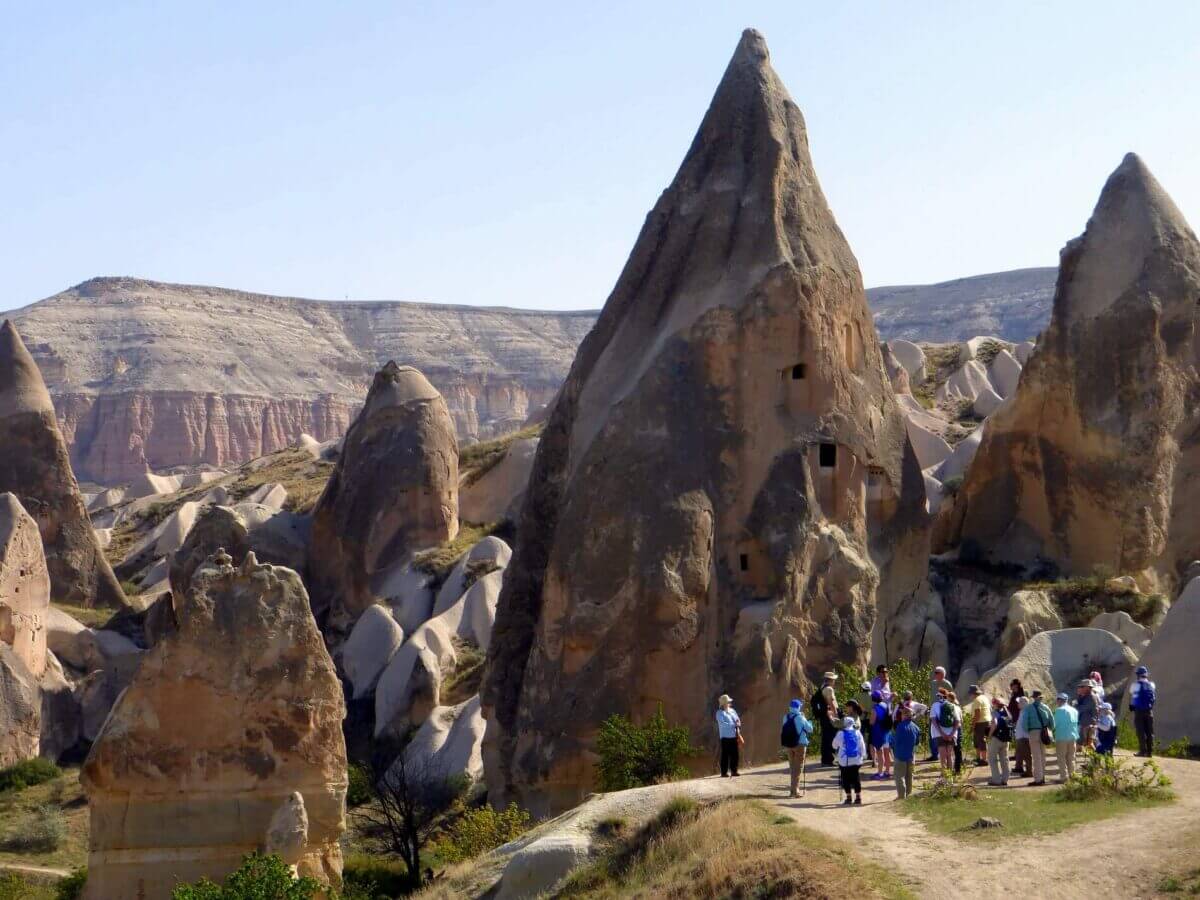
Turkey
-
- A flight to Turkey takes us to Kusadasi for a two-night stay. Ephesus and Pergamum were 2 of the 7 churches addressed by John in the Book of the Revelation. Their excavated ruins have mesmerized millions with a glimpse into the ancient world of Rome and Hellenistic culture.
- We fly to Turkey’s interior for 3 nights in Cappadocia, also mentioned in Paul’s journeys, and site of some of our favorite walk experiences amongst the wonderland of bizarre, smurf-like tufa formations.
- Our final flight lands in Istanbul for 3 nights where we explore one of the world’s exotic cities. Layers of history and architecture go back to the early first millennium, and architectural wonders like the Blue Mosque and Haghia Sophia blend with cultural scents and textures of the Grand Bazaar, the Spice Market, and a host of street scenes that strain the limits of both your senses and your camera eye.
Perhaps you can tell we’re enamored with this corner of the planet. So much waits here to explore, understand, contemplate, enjoy…on the surface and many, many layers below.
Click here to see the current webpage for this Adventure

